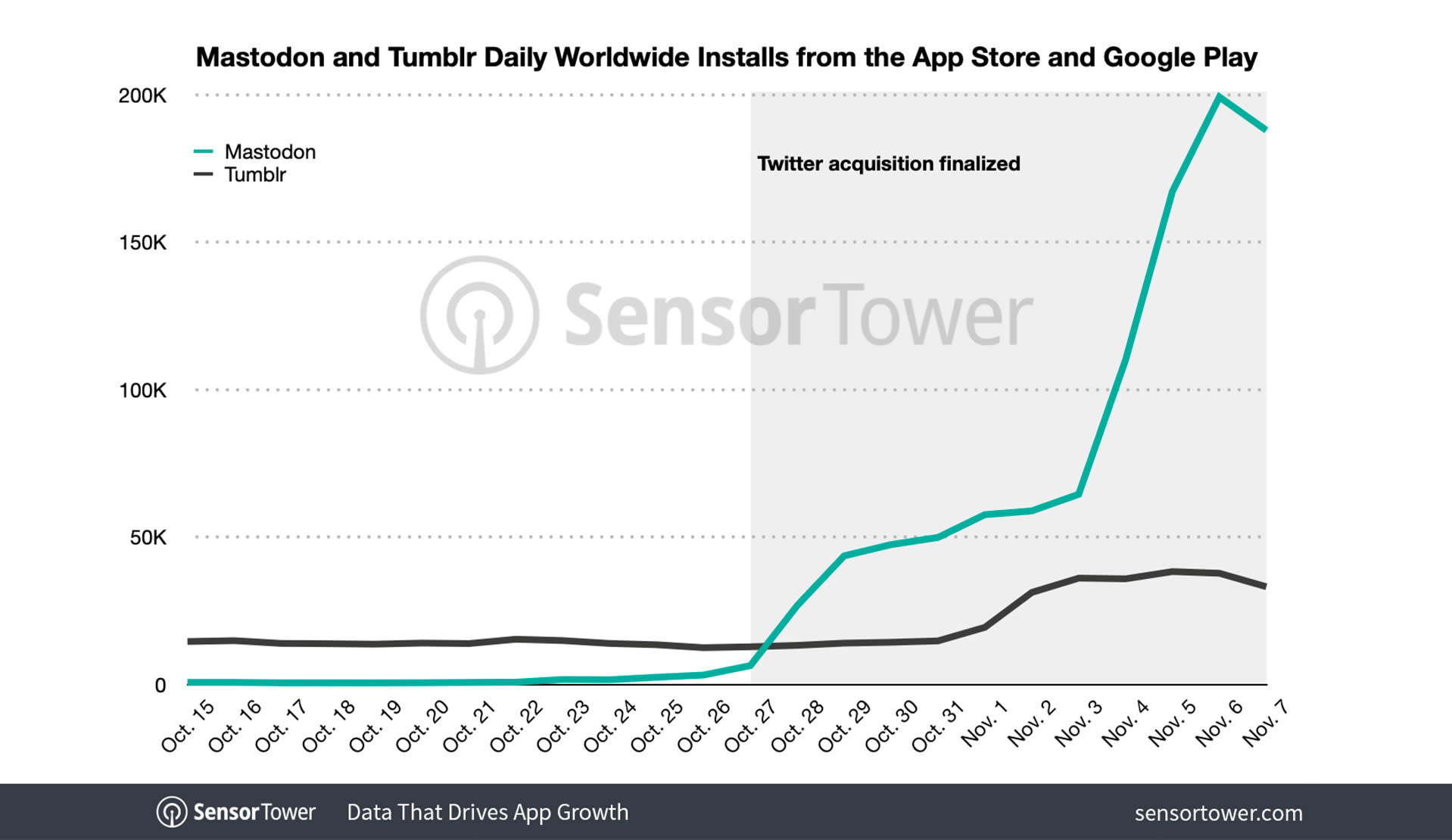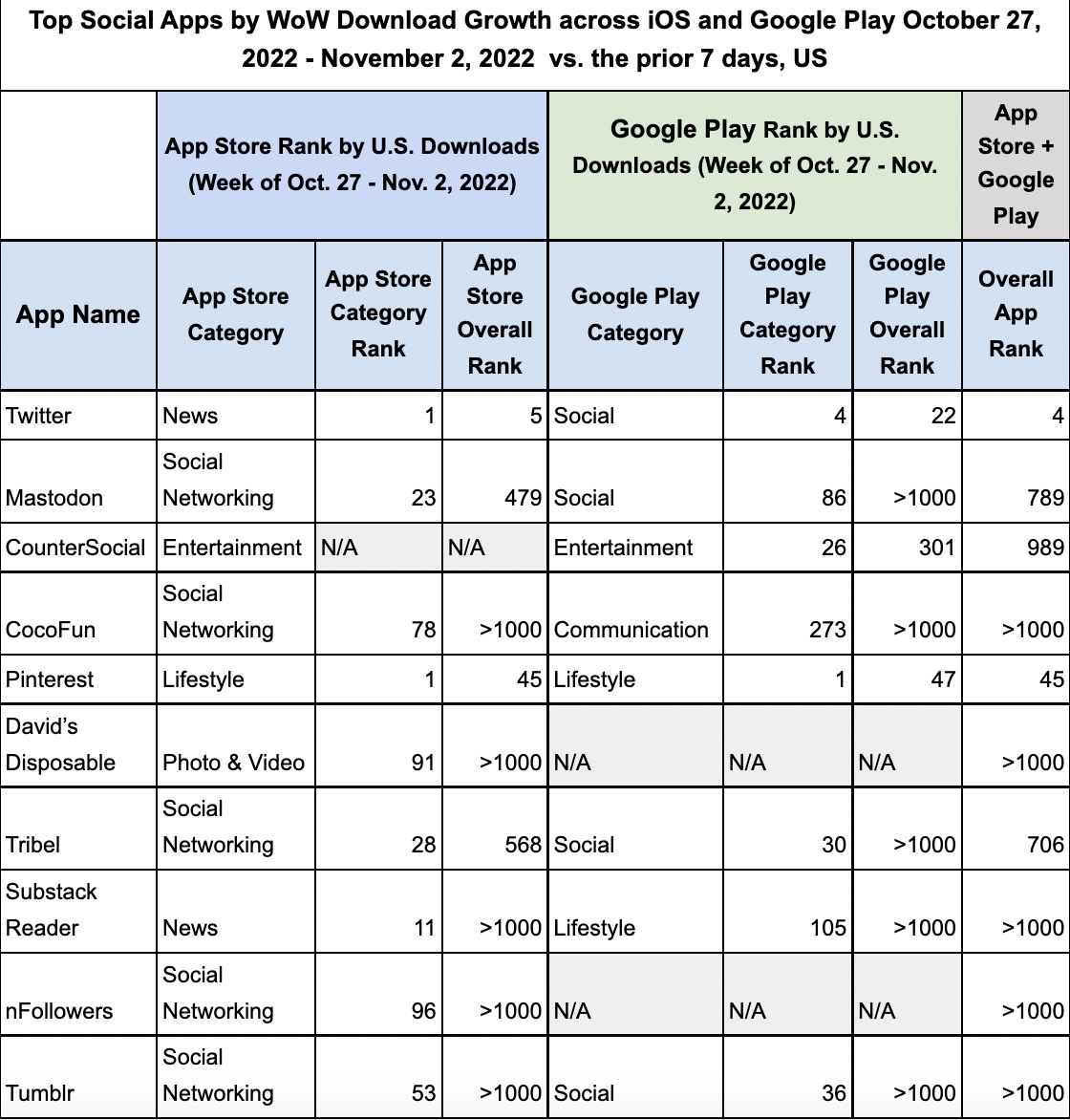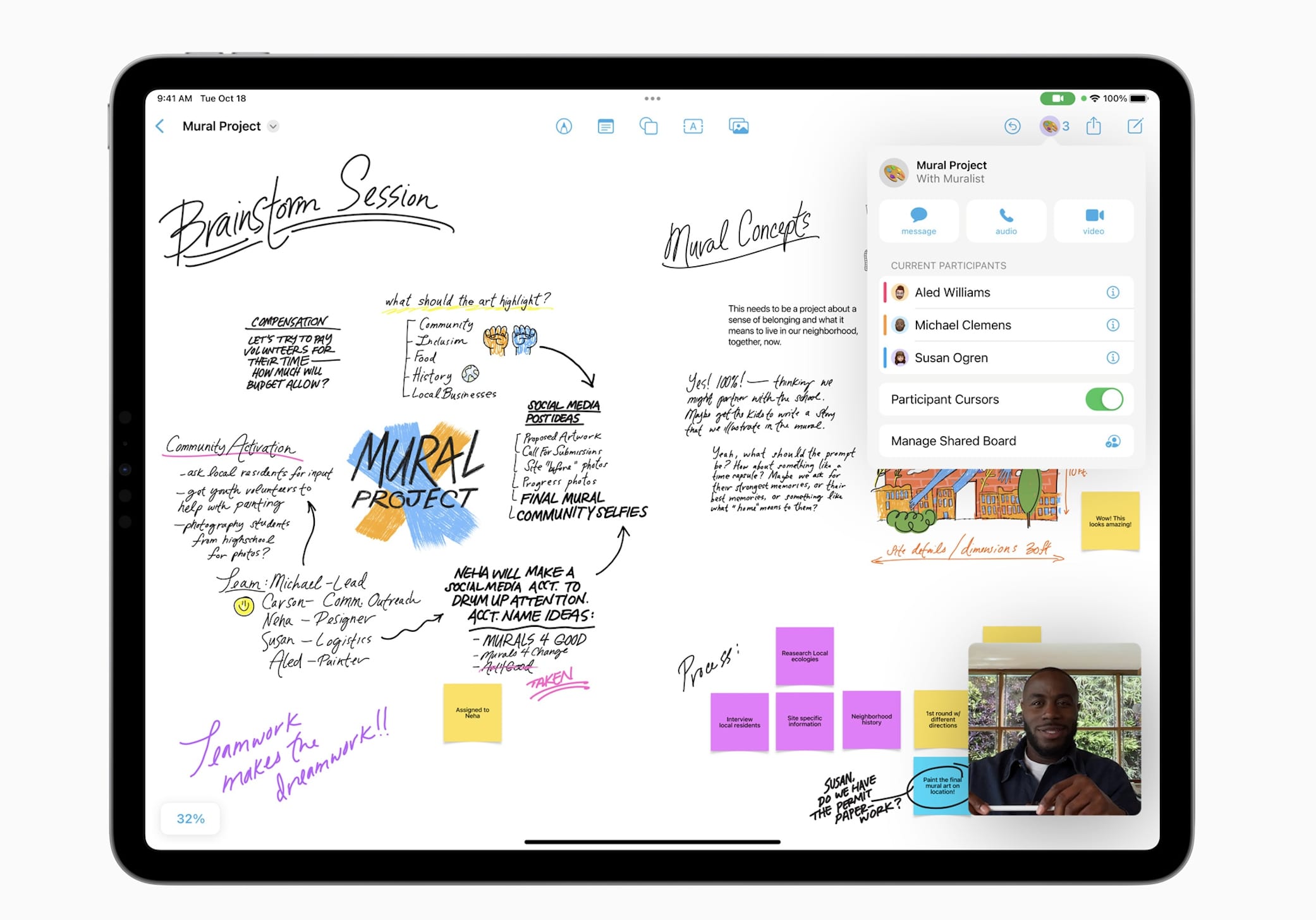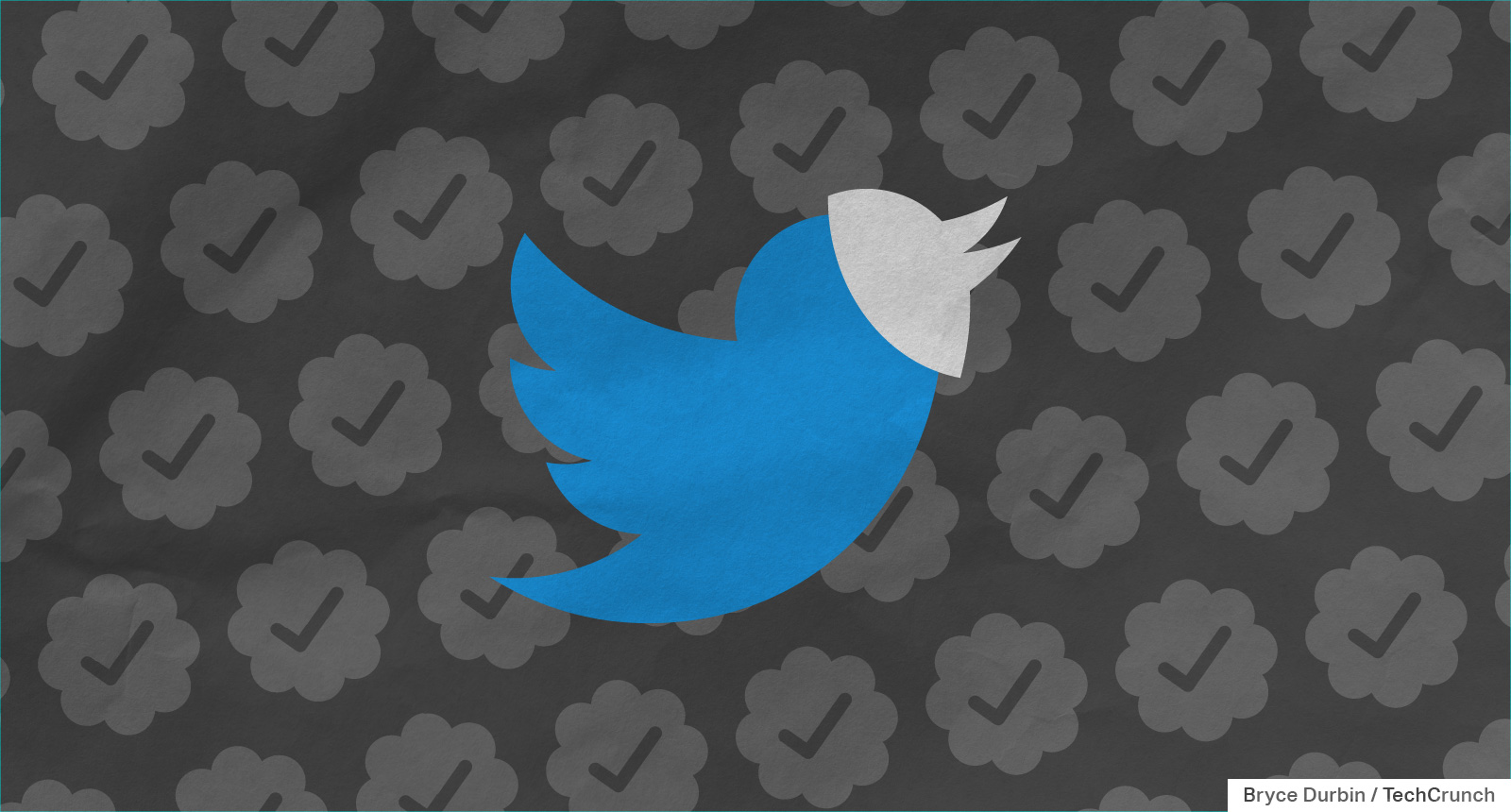Category: TECHNOLOGY
Citi backs Indian SaaS startup Lentra as it plans to expand internationally
India initially made its name in the tech world years ago when it staked out reputation as a key hub for business process outsourcing. Now that legacy has taken a very different turn in fintech with outsourcing of a very different kind, with the emergence of embedded finance technology. In the latest development, Lentra, an Indian embedded AI-based finance startup, has raised $60 million — a Series B that values the startup at “over $400 million,” D Venkatesh, the founder and CEO of the startup, told TechCrunch in an interview.
Existing investors Bessemer Venture Partners and Susquehanna International Group (SIG) led the round with strategic participation also from Citi Ventures, a subsidiary of the New York-based investment banking giant Citigroup.
This is Citi Ventures’ first investment in a fintech out of India, and this round overall underscores how far the fintech and embedded finance ecosystem have come along in recent years. Lentra, which is profitable, has been growing at a very fast clip. In 2019, its first year of operations, it registered $1 million from its “annual consumption rate” — this term relates to the amount of revenue Lentra makes based on usage of its APIs. As of this year, that figure is up to $10 million, and it is projected to hit $100 million in 2024.
The Mumbai-based startup works with commercial banks to power their digital loan services. HDFC Bank, Federal Bank, Standard Chartered and IDFC First Bank are some of its key customers. Overall, Lentra has more than 50 clients and has processed over 13 billion transactions and $21 billion worth of loans since its launch. Venkatesh said the startup achieved all this growth without hiring a single sales executive until April this year.
The company’s mission is not unlike that of a number of other fintechs that have thrown their hats into the ring to work with — rather than completely upend and disrupt — legacy financial services providers, which have found themselves unable to keep up with innovation from faster moving, tech based competitors.
“We want to help and empower the banks, who are our clients, to lend better, lend completely on a digital platform and improve on all parameters,” said Venkatesh.
Those parameters are the same for banks the world over. Yes, banks want to lend more, and to be more accessible to more potential borrowers — hence moving to digital platforms to help them scale and compete better against digital-first offerings. But banks have had their feet burned many a time already: they don’t want to take on a load of bad debt in the process of scaling, so they need better tech to improve how they vet borrowers, and also to have a better grip on forecasting what they might expect to get in returns (and losses) as a result.
The four-year-old fintech helps them do this through a variety of loan tools. Lentra Lending Cloud, which gives ready-to-use third-party API connectors to various data sources, as well as a Loan Management System (LMS) and a no-code Business rules engine (BREx) with modules for clients to use out-of-the-box. The startup also has a platform called GoNoGo in its catalog that helps banks ascertain whether a loan should be given to a customer once they get their application.
Venkatesh said that in India, 90% of lending frauds occur by way of ID proof thefts, where bad actors impersonate someone with a better credit record to get a loan quickly. Lentra uses AI to triangulate data to identify potential fraud attempts.
“If you solve ID theft fraud, you minimize the approach or the stance that the bank will have towards a non-performing asset or bad loan,” the founder said.
He claimed while banks had only been able to whittle down the loan process — applying, processing and approving or denying applications — to between six and seven days, Lentra’s technology has reduced that turnaround to a few seconds.
Even though a number of startups are trying to ease lending for banks, interestingly Lentra sees Salesforce as one of its biggest competitors when it comes to loan origination.
“Our number one target is anyone who’s using Salesforce for loan origination. We go, latch on to them, and then we convert them,” Venkatesh said.
Citi is not just interested in tapping more into India’s tech ecosystem, but to leverage it for its own global growth, too.
“Lentra is our first fintech investment in India, and we are very excited about the team’s ability to develop and scale low-friction software solutions for lenders,” said Everett Leonidas, Director & APAC Lead Investor for Citi Ventures, in a statement. “As a global bank, we look forward to Lentra scaling their products and platform internationally.”
Venkatesh told TechCrunch that Lentra plans to utilize the funding to continue updating its platform, add new features and make it more robust and faster. The startup is also set to expand beyond India and establish its business outside the country, starting with three economies in Asia: Indonesia, the Philippines and Vietnam. Post the initial expansion, the startup plans to go beyond Asia and enter the U.S.
Offices in the three new Asian countries will become operational starting as early as January, the founder said.
Lentra already has its presence in Singapore since it acquired an AI startup TheDataTeam in June this year that had an office in the Lion City. Venkatesh said that the office in Singapore would become the vehicle for the startup to go into the ASEAN economies.
Alongside improving the offering and expanding the business, Lentra has plans to acquire complementary businesses. The founder told TechCrunch that its acquisition plans focus on three areas — robotic process automation, payment systems or solutions that are not regulated entities and teams working on statistical modeling or building heuristics model within statistics.
“Lentra is empowering lenders to fuel the dreams of millions with effective financial inclusion and credit decisioning,” said Vishal Gupta, Partner at Bessemer Venture Partners. “We were really impressed with the combination of their technology prowess and the commercial advantage that Lentra is delivering to their clients. We look forward to helping them continue to achieve their vision of becoming the most trusted and sought after cloud-native digital lending platform, empowering clients in democratizing credit through accurate decisioning and rapid processing.”
Lentra also has HDFC Bank as an investor, though it did not participate in the latest funding round. Venkatesh said that the bank could have invested but it did not this time as it had to follow the Reserve Bank of India’s condition of not holding more than 10% in unrelated businesses due to merging with HDFC Group.
The startup currently has Mumbai as its number one market, followed by Delhi, Chennai and Bengaluru. It has a team of 500 people that is aimed to grow to 800 to support the ongoing plans.
Citi backs Indian SaaS startup Lentra as it plans to expand internationally by Jagmeet Singh originally published on TechCrunch
https://techcrunch.com/2022/11/13/citi-india-investment-saas-startup-lentra-funding/
Volunteer at TC Sessions: Space and get a free pass to TechCrunch Disrupt 2023
It takes a lot of people to bring a tech conference to life, and we’re looking for incredible people to support our events team and help make TC Sessions: Space an amazing experience for our attendees.
If you’re incredible (heck, you know you are) or interested in space technology, tech startups, event planning — or all of the above — apply to volunteer at TC Sessions: Space, which takes place on December 6 in Los Angeles, California. It’s a great way to see what it takes to produce a world-class conference.
We expect more than 1,000 people at this event, and volunteers will handle a variety of tasks. At any given time, you might help with registration, wrangle speakers, direct attendees, scan tickets or help with general event setup.
What’s in it for you? Fair question. If you’re selected, not only will you get a behind-the-scenes look at how events are produced, but you’ll also earn a free pass to attend TechCrunch Disrupt 2023 in San Francisco on September 19–21.
Plus, when you complete your volunteer shift, you can attend the interviews, presentations and breakout sessions. Just some of the speakers gracing our stage include:
- Frank Calvelli, assistant secretary, Air Force for Space Acquisitions and Integration
- Steve Jurczyk, co-founder and CEO, Quantum Space
- Carolyn Mercer, chief technologist, NASA
- Melanie Stricklan, co-founder and CEO, Slingshot Aerospace
- Thomas Zurbuchen, associate administrator for the Science Mission Directorate, NASA
And, of course, be sure to check out the early-stage startups exhibiting their latest space tech on the show floor.
Volunteer spots are limited. If you want to gain valuable event experience, take in all the galactic goodness and earn a free pass to TechCrunch Disrupt 2023, apply to volunteer at TC Sessions: Space by November 22 to be considered!
Volunteer at TC Sessions: Space and get a free pass to TechCrunch Disrupt 2023 by Lauren Simonds originally published on TechCrunch
How the FirstBuild product co-creation studio is changing how new things are made
If you are running R&D at a large appliance manufacturer, you have a challenge.
You typically make products in enormous quantities at pretty slim margins. In order to recoup your development, tooling and launch marketing costs, you need to create and sell a huge number of products. To ensure that that’s possible, you’d probably end up doing a bunch of user and market research to ascertain that you have the highest chance of success with your products.
That makes sense, but the very business model itself means that it’s hard to do something truly risky, which in turn means that mainstream manufacturers rarely come up with anything genuinely innovative.
If there was a mushroom fruiting appliance, would a lot more people regularly be growing mushrooms at home? There was only one way to find out: to build one and to try and sell it.
That’s where FirstBuild comes in. If you’re a small appliances nerd, you may have seen its Opal nugget ice maker, the studio’s first big breakthrough; the Mella mushroom fruiting chamber; its indoor pizza oven; or the Arden indoor smoker. I spoke with André Zdanow, president at FirstBuild, to figure out where these ideas came from and how the studio is working to try to replicate those successes.
“The most famous example is probably the Opal nugget ice maker. At first, it wasn’t actually a product at all — it was a technology being worked on in the refrigeration division of GE Appliances,” Zdanow said, explaining that it turned out to be a head-scratcher. They wanted to put the “nugget ice” into a fridge but weren’t able to figure out exactly what the market size would be for such a thing. “It’s actually really complicated to put the technology into a refrigerator. In other words, it was really a great idea that engineers had been toying around with for years, but in the context of the focus and economics of a multibillion-dollar company, it wasn’t something that they could focus on.”
The Opal nugget ice maker was FirstBuild’s first commercial success. Image Credits: FirstBuild
In a parallel universe, that tech would never have seen the light of day, but instead, the engineers came to FirstBuild and wondered what would happen if they put the tech in a separate appliance, rather than into a full-size refrigerator.
“We see lots of people go to the store and buy this type of ice. They call it Sonic ice or hospital ice. We decided to develop a prototype and see if people want it to be just an ice maker,” Zdanow explained. That was the genesis of the FirstBuild lab’s success. “It started with crude concepts that looked like an ice maker but had nugget ice in it. From there, it progressed through industrial design and ultimately to a $2.7 million crowdfunding campaign on Kickstarter back in 2015.”
How the FirstBuild product co-creation studio is changing how new things are made by Haje Jan Kamps originally published on TechCrunch
The power pendulum is swinging back to employers, isn’t it?
Tech layoffs may get worse before they get better — which means that the next few months will be full of companies trying to pivot their way to survival during this extended downturn.
At least that’s what entrepreneur Nolan Church, who helped lead Carta’s 2020 layoffs as its chief people officer, thinks. He estimates that another 30,000 to 40,000 tech employees around the world will be laid off in Q1 2023 — a number that follows the more than 100,000 layoffs so far in 2022, according to layoffs.fyi data.
Church chatted with me on Equity this past week about how his experience in the people operations world, at both Carta and DoorDash, has influenced his perspective on the best playbook for layoffs. He’s also building Continuum, a venture-backed startup that wants to match executive talent with startups for full-time and fractional opportunities. Unsurprisingly, his vision for a more flexible workforce fits well into the fact that tens of thousands of employees are now looking for work after just this week’s layoff stampede alone.
My entire conversation with Church lives now wherever you find podcasts, so take a listen if you haven’t yet. Below, we extracted four key excerpts from the interview, from canned CEO statements to how he’s thinking about Twitter’s workforce reduction.
The conversation
Let’s talk about Twitter and ownership. We saw Jack Dorsey tweet a few days after the layoff that he ultimately owns responsibility for the fact that Twitter overhired. That delay in his response created a lot of attention, which made me wonder if the bar is getting higher when it comes to the way that employees expect CEOs to take responsibility for large-scale layoffs.
Over the last 12 years, the pendulum between who has power between employees and employers has drastically swung toward employees. Now we’re in a moment where the pendulum is swinging back. If I predict where the next five to 10 years are going, the best talent is ultimately always going to be sought after. And I think employees now will continue to hold more power as they go forward. And they will remember how companies handle this moment.
To your point around Jack, very candidly, I thought [his statement] was so weak. He waited to say anything; he sent out like two sentences. As somebody who has followed Jack and has been a fan of Jack for a very long time, I thought that this was the definition of weak leadership. And I would have expected more from him. And if I was an employee thinking about working for Jack in the future, I would think twice about it.
The power pendulum is swinging back to employers, isn’t it? by Natasha Mascarenhas originally published on TechCrunch
https://techcrunch.com/2022/11/13/the-power-pendulum-is-swinging-back-to-employers-isnt-it/
What goes up must come down
Welcome to The Interchange! If you received this in your inbox, thank you for signing up and your vote of confidence. If you’re reading this as a post on our site, sign up here so you can receive it directly in the future. Every week, I’ll take a look at the hottest fintech news of the previous week. This will include everything from funding rounds to trends to an analysis of a particular space to hot takes on a particular company or phenomenon. There’s a lot of fintech news out there and it’s my job to stay on top of it — and make sense of it — so you can stay in the know. — Mary Ann
Like many of you, I’m sure, I was caught up last week watching the downfall of FTX unfold. It was a startling development in the world of crypto, and while I don’t cover the space directly, I couldn’t help but be fascinated by the goings-on — and not in a good way.
For more on that debacle, check out our crypto-focused Chain Reaction podcast here and our general coverage here.
I also couldn’t help watching the train wreck of Elon Musk taking over Twitter and Meta’s letting go of 11,000 people. But I digress.
Last week, I ended the newsletter saying I hoped this week would come with more uplifting news. Unfortunately, that was not the case.
Real estate fintech Redfin announced on November 9 that it was laying off 13% of its staff, or 862 people, in response to the continued slowing of the housing market. This followed Opendoor’s layoff of 550 people, or 18% of its workforce, the week before and Zillow’s cuts of 300 in late October. It also follows Redfin’s letting go of 470 employees in June.
Notably, Redfin also said it is shuttering RedfinNow, its iBuying division. To that end, CEO Glenn Kelman wrote in an all-hands email: “One problem is that the share gains we could attribute to iBuying have become less certain as we rolled it out more broadly, especially now that our offers are so low…And the second problem is that iBuying is a staggering amount of money and risk for a now-uncertain benefit. We’ve tied up hundreds of millions of dollars in houses that you yourself wouldn’t want to own right now.”
Kelman went on to say that the company’s June layoff was in response to Redfin’s expectation that it would sell fewer houses in 2022. The latest layoff “assumes the downturn will last at least through 2023.”
Redfin’s, Zillow’s and Opendoor’s layoffs aren’t the only ones in the industry. Digital mortgage lender Better.com conducted yet another layoff or two in the past couple of weeks. One source told me 240 employees were let go on November 4. And San Francisco Business Times reporter Alex Barreira tweeted on November 11 that dozens more workers were let go, sharing colorful details of the company’s WARN notice, in which Better.com said it was not able to provide notification earlier as the separations were the result of a “dramatic deterioration” in the company’s business. When I reached out to the company about the layoffs, a spokesperson wrote via email: “Better is focused on making prudent decisions that account for current market dynamics.”
Okay, back to Redfin. One thing that stood out most to me with regard to that company’s latest round of layoffs was Kelman’s candor as he addressed employees. In his email, he said: “To every departing employee who put your faith in Redfin, thank you. I’m sorry that we don’t have enough sales to keep paying you.”
Interestingly, Kelman appears to be putting his own personal bets into real estate markets outside the U.S. In September, he co-invested in a Seattle startup called Far Homes that was founded by Redfin alums and is focused on “buying and selling real estate in foreign markets,” as reported by GeekWire.
CEOs as of late have been particularly remorseful as their companies either deteriorate or lay off staff. Besides Kelman, other examples this week include Meta CEO Mark Zuckerberg admitting he overestimated how long the post-pandemic revenue surge would last, saying: “I got this wrong, and I take responsibility for that.”
Also last week, FTX CEO and founder Sam Bankman-Fried admitted he “fucked up” and “should have done better” right before FTX declared bankruptcy and he stepped down from his role. This is after the crypto exchange was valued at $32 BILLION earlier this year. In Early August, Robinhood CEO Vlad Tenev took responsibility for the company’s letting go of 23% of its staff, saying: “This is on me.”
Even Better.com CEO Vishal Garg admitted at one point that he had not been disciplined over the previous 18 months, telling employees: “We made $250 million last year, and you know what, we probably pissed away $200 million.”
What does this tell us? CEOs are human, yes. Flawed humans just like the rest of us. In some cases, decisions such as over-hiring were made out of genuine (or foolish) belief that the people hired would be needed in years to come. In other cases, decisions were less honorable and more about furthering the executive’s own agenda.
Unfortunately, either way, thousands of employees are paying the price.
Image Credits: Kuzma / Getty Images
Weekly News
Months after acquiring gamified finance mobile app startup Long Game, Truist Financial Corporation has introduced the Truist Foundry, an innovation division that it says “will function as a startup within the bank.” The goal will be to deliver “game-changing projects” and serve the bank’s lines of business. A spokesperson told me via email that specifically, the Truist Foundry will work on “building software solutions that drive value and market leadership for the bank.” In other words, it looks like one of the United States’ largest banks is getting even more serious about its digital efforts.
Instacart has tapped Dutch payments giant Adyen to serve as “an additional payments processing partner.” As part of the new partnership, the companies said in a press release that Instacart will leverage Adyen functionality, including PINless debit enablement of transactions “to further optimize and improve authorization rates for an even more seamless customer experience.” Pymnts has more here.
Another example of fintech for good. Banking-as-a-service startup Synctera is partnering with Solvent, a fintech company that is building “affordable financial services” to support those who were previously incarcerated. One aspect of the link-up is Synctera’s recently announced Smart Charge Card, which does not require a credit review or a company to fund its customers’ balances. Overall, Synctera says it is helping supply Solvent with “a suite of personal finance and banking tools, products and services aimed to empower and build wealth among ex-cons, a group of Americans often underserved and overlooked.”
BNPL player Affirm last week reported mixed financial results. While its fiscal first quarter revenue of $361.62 million beat analysts’ estimates, its net loss of 86 cents per share was greater than expected. Its stock tanked to a new 52-week low of $11.94 last week before rebounding to $15.88 on Friday morning at the time of writing. The company tried to put a positive spin on the results, sharing via email that active consumers grew 69% year-over-year and total transactions increased to 13.3 million, representing 97% growth year-over-year. It also claimed that delinquencies and net charge-off rates remained at or below pre-pandemic levels during the quarter.
From Sarah Perez: “Elon Musk last week detailed his vision for Twitter’s plan to enter the payments market during a live-streamed meeting with Twitter advertisers, hosted on Twitter Spaces. The new Twitter owner suggested that, in the future, users would be able to send money to others on the platform, extract their funds to authenticated bank accounts and, later, perhaps, be offered a high-yield money market account to encourage them to move their cash to Twitter.”
Also from Sarah Perez: “Google announced it’s expanding its user choice billing pilot, which allows Android app developers to use other payment systems besides Google’s own. The program will now become available to new markets, including the U.S., Brazil and South Africa, and Bumble will now join Spotify as one of the pilot testers. Google additionally announced Spotify will now begin rolling out its implementation of the program starting this week. The company first announced its intention to launch a third-party billing option back in March of this year, with Spotify as the initial tester.” More here.
From Tage Kene-Okafor: Kuda, the London-based and Nigerian-operating startup taking on incumbents in the country with a mobile-first and personalized set of banking services, is expanding to the U.K. by offering a remittance product to Nigerians in the diaspora. The digital bank has seen some success since launching in Nigeria in 2019. Kuda claims to have up to 5 million users, more than thrice the number it had last August during its $55 million Series B round, money it raised to enter into other African countries like Ghana and Uganda this year. Expansion into those countries is yet to materialize; instead, Kuda has opted to launch in the U.K., a move the company says is part of a major global expansion drive.

Image Credits: Bryce Durbin / TechCrunch
Funding and M&A
Thomson Reuters to acquire tax automation company SurePrep for $500M
Pet insurance startups chase the market as pet ownership booms among Gen Z and Millennials
Yassir pulls in $150M for its super app, led by Bond
Quona Capital sinking $332M into startups focused on financial inclusion
Former Tink employees launch Atlar, a payment automation startup
Travel app Hopper raises $96M from Capital One to double down on social commerce
Blnk, a fintech that provides instant consumer credit in Egypt, raises $32M in debt and equity
A16z-backed Tellus wants to offer consumers a much better savings rate. Here’s how.
And elsewhere:
Savvy Wealth completes $11 million capital raise:
Ritik Malhotra (CEO) and Muller Zhang (CTO) founded Savvy after Malhotra came into a windfall of cash after selling his two startups (Streem was acquired by Box in 2014, and Elph was acquired by Brex in 2019). Long story short, he was advised to seek out a financial advisor, and after sampling several different options, he was inspired to start Savvy in 2021 — a national registered investment advisor (RIA) built on what the company describes as “a digital first wealth management firm centered around modernizing human financial advice.”
Before I close, just a reminder that we here at TechCrunch love scoops. So if you’ve got a news tip or inside information about a topic we have covered (or haven’t yet but should). I’d love to hear from you. You can reach me via Signal or DMs at 408.204.3036. Or you can drop us a note at tips@techcrunch.com. If you prefer to remain anonymous, click here to contact us, which includes SecureDrop (instructions here) and various encrypted messaging apps.
That’s it from me for this week. Here’s to more good news than bad next week! Until then, take good care…xoxo, Mary Ann
What goes up must come down by Mary Ann Azevedo originally published on TechCrunch
https://techcrunch.com/2022/11/13/what-goes-up-must-come-down-fintech-layoffs/
Meta lays off thousands, FTX collapses, and Twitter has a very weird week
Hey, friends! Welcome back to Week in Review, the newsletter where we recap the top TechCrunch headlines from the past seven days. Get it in your inbox every Saturday AM by signing up here.
Ready? Let’s go.
most read
Twitter had a week so strange that it could easily make up this entire newsletter, so we’ll keep to the bullet points:
- Last week Elon laid off a huge chunk of the company. This week, some of those who were let go were reportedly asked to come back.
- Twitter started giving blue verified checkmarks to anyone who’d pay $8. Things got chaotic fast.
- Twitter rolled out a new, second checkmark for “Official” accounts. And then got rid of them. And then…brought them back?
- By Friday morning, after fake “verified” accounts popped up for everything from companies to athletes to politicians, Twitter paused the $8 verification badge program.
- A number of execs quit — to the point where the exits perked the ears of the FTC.
- Elon reportedly told Twitter employees that “bankruptcy isn’t out of the question” for the company.
FTX collapses: Once one of the biggest crypto exchanges in the world, FTX effectively exploded this week. It briefly looked like competitor Binance would step in to acquire FTX, only for Binance to take one look at FTX’s books and back out almost immediately. FTX founder Sam Bankman-Fried has since resigned, and the company has filed for bankruptcy.
Meta layoffs: Meta — the parent company behind Facebook, Instagram, and Whatsapp — laid off 13% of its workforce this week. With a worldwide headcount of around 87,000 employees, that works out to over eleven thousand roles cut.
Gmail will no longer let you go back to old Gmail: Don’t like the new look that Gmail started rolling out back in July? Bad news. While users could previously revert to the old design, the Gmail team announced this week that the new design will be the “standard experience” for all within weeks.
Google finds exploits in Samsung phones: “Google says it has evidence that a commercial surveillance vendor was exploiting three zero-day security vulnerabilities found in newer Samsung smartphones,” writes Zack Whittaker. “The chained vulnerabilities allow an attacker to gain kernel read and write privileges as the root user, and ultimately expose a device’s data.”
audio roundup
Looking for a new podcast to tune into on your commute? Here’s what’s up in TC podcasts lately:
- The Chain Reaction crew broke down the absurd collapse of FTX as it was happening.
- Equity (with a guest appearance from TC’s Becca Szkutak) covered the seemingly endless layoffs we’re seeing from tech companies big and small, and what FTX’s meltdown means for it and companies like it.
- Darrell was joined on The TechCrunch Podcast by TC senior reporter Dom-Madori Davis to talk about “the coalition of VCs that are standing for reproductive rights” and to recap the biggest tech stories of the week.
TechCrunch+
Not a TechCrunch+ member yet? Here’s what members were checking out most behind the paywall:
How ButcherBox bootstrapped to $600M in revenue: How did ButcherBox grow from a modest Kickstarter to $600 million in revenue in just a few years? Haje outlines the company’s path so far.
The Exchange: In his increasingly popular daily newsletter, Alex Wilhelm wonders: Has everyone been valuing software companies the wrong way all along?
Meta lays off thousands, FTX collapses, and Twitter has a very weird week by Greg Kumparak originally published on TechCrunch
FTX Investigating a Potential Hack Amid Bankruptcy
More than $370 million worth of crypto funds appears to be missing, according to a crypto analytics firm.
How Twitch CEO Emmett Shear Gets to Inbox Zero
The 39-year-old head of the gaming and entertainment live-streaming service shares what’s on his phone.
https://www.wsj.com/articles/twitch-ceo-emmett-shear-phone-download-11667941249?mod=rss_Technology
This Week in Apps: Twitter’s crazy week drives social apps’ growth, Google expands user choice billing
Welcome back to This Week in Apps, the weekly TechCrunch series that recaps the latest in mobile OS news, mobile applications and the overall app economy.
Global app spending reached $65 billion in the first half of 2022, up only slightly from the $64.4 billion during the same period in 2021, as hypergrowth fueled by the pandemic has slowed down. But overall, the app economy is continuing to grow, having produced a record number of downloads and consumer spending across both the iOS and Google Play stores combined in 2021, according to the latest year-end reports. Global spending across iOS and Google Play last year was $133 billion, and consumers downloaded 143.6 billion apps.
This Week in Apps offers a way to keep up with this fast-moving industry in one place with the latest from the world of apps, including news, updates, startup fundings, mergers and acquisitions, and much more.
Do you want This Week in Apps in your inbox every Saturday? Sign up heretechcrunch.com/newsletters
Top Stories
It’s a Twitter dumpster fire and I can’t look away
Image Credits: Cloudytronics (opens in a new window) / Getty Images
Where to even begin? This week Twitter became one of the most chaotic, most disastrous social networks in history — and arguably, also the most interesting, in a sort of rubbernecking kind of way. There was something new taking place either on the platform directly or within the company itself at nearly every minute.
In just a handful of days since Musk’s takeover, Twitter has seen the following:
- The launch of Twitter Blue (11/9) followed by a pause (11/10), followed by its disappearance from the app entirely (11/11).
- Widespread impersonation of high-profile accounts, including Musk’s own, by Verified users — including, almost immediately, the $8/month Twitter Blue Verified users after the new subscription went live.
- The launch of Official badges (11/8) for high-profile accounts, followed by their disappearance (11/9) followed by their return (11/11).
- Elon Musk’s reveal of his plan to have Twitter enter the payments business.
- Further departures of key execs, including its most senior cybersecurity staffer Lea Kissner (11/10), chief privacy officer Damien Kieran (11/10), chief compliance officer Marianne Fogarty (11/10) Head of Trust and Safety Yoel Roth (11/10) — the latter who has been one of the last remaining sane voices at the company amid the upheaval.
- Musk held a call with advertisers (11/9) that did not offer any solid assurances that all would be well.
- After this call, the call’s host and head of ad sales Robin Wheeler, quit. Later, she tweeted “I’m still here” after being persuaded by Musk to stay (11/10).
- After the departure of key executives across trust, safety, data governance and security, the FTC issued a rare warning to Twitter (11/10). The agency said had been “tracking the developments at Twitter with deep concern,” and that “no CEO or company is above the law.” Twitter was put under an FTC consent order in 2011 after being found to have misused user data. The order requires, among other things, that new product rollouts receive full security reviews and it dictates what Twitter can and cannot do with data. The number of rapid changes, eliminations of departments, departures of key personnel and fast launches and shutdowns of new products are now raising questions as to whether or not Twitter has managed to remain compliant with the FTC’s decree.
- The lead regulator in the European Union then came after Twitter, setting a meeting for next week to discuss concerns including the data protection officer’s departure and whether Twitter’s main establishment for GDPR purposes is still located in Ireland.
- Musk addressed employees at an all-hands (11/10) and warned them Twitter may have a net negative cash flow of billions in 2023 and suggested bankruptcy was not out of the question.
One can argue that Musk was right to take a new approach at Twitter, which was losing money and failing to grow its user base. Coming in with fresh ideas and swapping out the executive team isn’t that unusual in a takeover, nor are widespread layoffs when a company is in financial trouble. New product experimentation is also to be expected. And revamping Twitter Blue, which has so far failed to attract subscribers, makes sense too.
But it’s not the what that’s the issue here, really — it’s the how. Musk clearly had not thought through the impact of his changes and he laid off people who could have offered deeper insight. His move to immediately make deep cuts across Twitter (after weird ideas about code reviews, apparently), meant he missed the opportunity to actually listen to current staff who could explain what Twitter has tried, what’s failed and why they’re doing the things they are. Even if Musk disagreed with Twitter’s current direction, those understandings could be used to better inform his future decisions.
Instead, he’s approached Twitter as a toy to be played with, saying even “Twitter will do lots of dumb things in coming months.” And it already has.
Please note that Twitter will do lots of dumb things in coming months.
We will keep what works & change what doesn’t.
— Elon Musk (@elonmusk) November 9, 2022
Living up to its promise, the first project Twitter landed on saw it reinventing the wheel.
Musk, having only perceived the value of a blue Verified badge as a status symbol, believed a wide swath of Twitter users would pay for the privilege of owning one. What he didn’t understand (unlike most of Twitter’s user base), is that Verification is actually a service the platform provides its community, not just an ego-pleasing checkmark. In fact, many of those with the original badge don’t see it as a status symbol, and wouldn’t pay for the “honor” of having one. Instead, the original blue badge was a way to quickly see that someone is who they claim to be or that they’re a trusted source of news and information.
Musk, on the other hand, thinks “citizen journalists” and everyday folks (or as he likes to call them, “peasants“) deserve some sort of verification, too. Which is…well, okay, he’s free to have that opinion and test it out as a paid product after spending $44 billion on this thing, I guess. (We don’t have space to talk about his misunderstandings around citizen journalism right now!)
But it could have been implemented in a different way — perhaps as a verified badge of a different shade or symbol, or even just as a system that would boost Twitter Blue subscribers’ tweets and replies on the platform above the non-paying users. After all, this is the core value Musk envisions for Twitter Blue, believing this is what would appeal to subscribers. Not to mention, such a system would make sense to test, given that it’s one that’s already been proven to work elsewhere. Paid elevation is a monetization lever other social networks utilize — like YouTube and Instagram, where products like YouTube’s Super Chat and IG Badges allow people to have their posts highlighted above others.
Twitter’s twist could have been that paid elevation like this wouldn’t necessarily be about getting the attention of top creators, per se, but would gain subscribers entry into everyone’s Verified tab or at least bumped to the top of the “All” notifications tab. Or, a secondary filter on the Verified tab could allow people to toggle on or off the visibility of “official” accounts, addressing complaints that the Verified tab is now no longer useful when checkmarks are for sale.
What a great thing this would have been to A/B test with a small percentage of the audience before fully diving in! But alas.
@elonmusk, from one entrepreneur to another, for when you have your customer service hat on. I just spent too much time muting all the newly purchased checkmark accts in an attempt to make my verified mentions useful again. Hope this helps.
— Mark Cuban (@mcuban) November 10, 2022
Rather than moving forward more thoughtfully, Musk simply trashed the existing Verification program — and without seemingly foreseeing the potential for widespread abuse. He then retroactively realized that identifying “Official” accounts had value for the wider community and for those who wanted a certain type of experience in the Verified tab itself.
His haphazard leadership led to new products launching, being shut off, then relaunching in a matter of hours and days. As a result, Twitter became a dumpster fire of sorts — and one that could have been avoided if Musk simply listened and learned before acting.
Google Play rolls out User Choice Billing more broadly, Epic Games’ Tim Sweeney trashes it as a ‘sham’

Image Credits: SOPA Images / Contributor / Getty Images
Google announced it’s expanding its user choice billing pilot, which allows Android app developers to use other payment systems besides Google’s own. The program will now become available to new markets, including the U.S., Brazil and South Africa, and Bumble will now join Spotify as one of the pilot testers.
The company first announced its intention to launch a third-party billing option back in March of this year, with Spotify as the initial tester. Now, Spotify says it will begin rolling out its implementation of this program with Google’s blessing.
The user choice billing program has steadily expanded over the course of the year. Last month, for example, Google invited non-game developers to apply for the user choice billing program in select markets, including India, Australia, Indonesia, Japan and the European Economic Area (EEA). The company also introduced a similar policy for developers in the EEA region in July, but the new guidelines raised the commission discount from 3% to 4% for developers who opted in. With today’s expansion, user choice billing will be made available to 35 countries worldwide.
Google says it’s been working with Spotify to help develop the experience and now the streaming music service will begin to put the new features into action in supported markets. The experience could still change over time, Google warned, as this is still the early days of the pilot test. In addition, Bumble has now joined Google to test user choice billing in its own app, with plans to roll out the options to users in select countries in the coming months.
It’s not clear what sort of deal Spotify and Bumble have received as Spotify won’t say beyond noting it meets the company’s standards of fairness.
In the meantime, not all developers think the deal is a good one.
Epic Games CEO Tim Sweeney, who is suing both Apple and Google for alleged monopolistic practices, called the new system a sham as Google still takes 26% of the revenue — a reference to the 4% discount for switching to another payment provider.
“This is Google’s dishonest attempt to thwart EU and Korean regulators by feigning compliance with their new rules for billing competition, while still collecting their monopoly rent and rendering competing payment services non-viable,” Sweeney wrote.
Now Google Play is rolling out its sham “user choice billing” in which developers can use their own payment systems for in-app purchases, with Google taking 26% of the revenue in exchange for doing exactly nothing. https://t.co/nNqDldxLW4
— Possibly Tim Sweeney (@TimSweeneyEpic) November 11, 2022
Mastodon and others gain in wake of Twitter chaos
The drama at Twitter has seen some users looking for an exit. In recent days, alternative social and microblogging platforms have seen strong gains, including, most notably, the open source decentralized Twitter alternative Mastodon. The service’s founder and CEO recently announced Mastodon had topped 1 million monthly active users, as more than half a million users joined the network since October 27.
App intelligence firm Sensor Tower noted Mastodon has seen approximately 322,000 installs from U.S. app stores in the 12 days following the acquisition (October 27 through November 7), which is more than 100 times the 3,000 it saw in the prior 12-day period. Globally, the app grew 657% to 1 million installs during that same October 27-November 7 time frame, up from 15,000 in the 12 days prior.
Other third-party Mastodon clients saw a bump, too, with Metatext and Tootle both growing from less than 1,000 installs to 19,000 and 7,000, respectively, between the two periods.
But Mastodon isn’t the only network seeing an uptick in installs, as it turns out.
Tumblr also saw its U.S. installs grow 96% from 47,000 to 92,000 between the two timeframes and saw global installs grow 77% from 170,000 to 301,000.

Image Credits: Sensor Tower
Alternative social app CounterSocial also grew 2,300% to 24,000 installs in U.S. app stores in the 12 days following the acquisition, and grew 3,200% globally, with 33,000 installs.
Another app intelligence firm, data.ai, sliced the data in a different way. It examined various social apps’ worldwide download growth during a seven-day period following the acquisition (October 27 through November 2), then compared that with the prior seven-day period. Its data also confirmed the sizable gains made by Mastodon and CounterSocial in terms of global install increases between the two timeframes. Mastodon’s installs jumped 2,200% and CounterSocial’s grew 1,200%.
Data.ai saw a number of other social apps seeing bumps, as well, beyond direct Twitter alternatives. This included David’s Disposable (up 83%), nFollowers (up 50%), CocoFun (up 46%), Substack Reader (up 24%), Tribel (up 11%), Tumblr (up 7%) and Pinterest (up 2%).
about this here.

Weekly News
Platforms: Apple
- Apple is planning to launch its Emergency SOS with Satellite in November. The service will see the tech giant paying $405 million to the U.S. companies enabling the feature, with the majority going to Globalstar.
- A change in the iOS 16.1.1 update will now restrict the “Everyone” option in AirDrop to 10 minutes on iPhones purchased in mainland China. Apple said it is improving the AirDrop experience by automatically reverting the receiving setting back to “Contacts Only” after 10 minutes to help mitigate unwanted file sharing.
- Apple rolled out the ability for users in Colorado to store their driver’s license or state ID in the Apple Wallet app. The feature has only rolled out to select states so far, including Arizona and Maryland, though Connecticut, Georgia, Iowa, Kentucky, Oklahoma and Utah are signed up.
- Apple released the second developer betas for iOS 16.2, iPadOS 16.2, tvOS 16.2 and watchOS 9.2.
- Apple is said to be working on a Custom Accessibility Mode for iOS 16.2, beta 2, codenamed Clarity, that will make the iPhone and iPad’s interface more user-friendly for those who find it overly complicated today. (Could be a good tool for a tech-unsavvy grandma or grandpa, it seems.)
- Apple is reportedly working on simplifying its voice assistant trigger from “Hey Siri” to just “Siri,” said launched another week of its Ask Apple developer series, where developers can connect directly with Apple experts in one-on-one consultations and group Q&As. This latest series will run from November 14 to 18 across time zones.

Image Credits: Apple
Platforms: Google
- Google is now allowing users to preview its newly redesigned Google Home app for iOS and Android. The new app lets you favorite devices, run automation (coming), enable new triggers for routines and more.
- Google released the public beta of the new Android Auto UI, first announced at Google I/O. Some of the notable changes in this release include: the map will now be closer to the driver in the new dashboard with improved size and reachability; the dashboard media card has a completely new look and now grows and shrinks dynamically; the map fills the entire Android Auto area; a new app dock in the rail makes it easier to switch between recent apps; more Material You and modernized UI; music and media recommendations from Google Assistant can be accessed with a swipe of the dashboard media card; and it consolidates the old status icons and notification center bell into one tappable area on the rail that includes the number of unread messages.
Fintech
- The world’s once-third-largest crypto exchange, FTX, was struggling to stay alive after a bailout deal with Binance failed this week. Sam Bankman-Fried began winding down trading firm Alameda Research and was attempting to raise liquidity for FTX International after the FTX exchange experienced a liquidity crunch. Those efforts didn’t pan out and on Friday, FTX announced it was filing for Chapter 11 bankruptcy in the U.S. About 130 additional affiliated companies — including FTX US and Alameda Research — also began the bankruptcy process.
Social
- Meta announced massive layoffs of 13% of its workforce, or 11,000 people, following Twitter’s layoffs of half its workforce, or 7,500 people after Elon Musk’s takeover. Meta employees will receive 16 weeks of severance pay, plus two extra weeks for each year of service, and six months of health insurance. Meta announced its first-ever quarterly decline in June, and saw its revenue decline again in Q3.
- Reddit launched a “community muting” feature that lets users mute an entire community on the platform. After muting, posts from that specific community will be removed from the user’s notifications, Home feed and Popular feed. The new feature is launching on Reddit’s mobile apps over the next few weeks and will later expand to the desktop.
- Instagram rolled out an in-app scheduling tool to all professional accounts. The tool allows creators and businesses to schedule posts in advance without having to use third-party apps or Creator Studio.
Photos/Creativity

Image Credits: Pinterest
- Pinterest’s new collage-making app Shuffles is now available to the public in select markets, after starting off as an invite-only app earlier this summer. Users can add their own photos or those from Pinterest boards to their collages as image cutouts. Shuffles grew in popularity with Gen Z users, who used the creative expression tool to make “aesthetic” collages, sometimes set to music and posted to TikTok, or shared privately with friends or the Shuffles community. The app is still considered a test, Pinterest says.
- Amazon Photos finally updated its Android app a year after the iOS version was redesigned. The new design is more modern with a focus on improved navigation, sharing, search and more. With a swipe up, you can access tools to filter photos by object, place or year. Prime members are offered unlimited full-res photo storage and 5GB of video storage.
- Popular third-party camera app Halide updated to version 2.10, which brought a 2X zoom to iPhone 14 Pro users, plus updates to Depth mode, a 48/12MP quick toggle and more.
Messaging

Image Credits: Telegram
- Telegram added several new features, including Collectible Usernames secured on the TON blockchain, voice-to-text for video messages new emoji packs, a redesign night mode on iOS, resizing text on Android, topics in groups and more. The company also threw shade at Apple for the update’s delay, writing it took two weeks for the update to be approved. Founder Pavel Durov added in a post, “Apple claims they review apps within 24 hours, but, in our experience, it takes at least 7-10 days for any meaningful product update to reach the App Store.”
- Signal launched a Stories feature on iOS and Android. The feature lets users share Stories that expire after 24 hours, much like other social apps. Users can choose who can see their Stories — which can be everyone in your phone’s contact list who uses Signal, anyone you’ve had a one-on-one conversation with in Signal or anyone whose message request you’ve accepted. The company plans to release Stories on the desktop soon.

Image Credits: Signal
Streaming & Entertainment
- Spotify redesigned its Apple Watch app with larger artwork, smoother animations and several new features. It’s now easier to see and select individual tracks and episodes from any playlist, podcast, artist or album directly on your watch, and you can swipe to “like” tracks and toggle shuffle mode “on” or “off ” before you start playing. Podcast pages have a new look too, and new episodes will be highlighted with a blue dot. Paying subscribers can also now download favorite songs, albums and playlists directly from the Watch app itself instead of using the mobile app, as before.
- All three major music labels — UMG, Sony and Warner — are asking TikTok to pay them a share of its ad revenues, hoping to reach a deal before their existing deals expire in the coming months, Bloomberg reported. The news comes at a bad time for TikTok, which is said to be cutting its revenue projections for 2022 to $10 billion, down from the $12-14.5 billion it had previously predicted, the FT said.
- TikTok also overhauled its U.S. operations after an advertising slump, which included moving GM Sandie Hawkins to TikTok Shop, per the FT.
- YouTube announced it surpassed 80 million YouTube Music and Premium subscribers globally, including customers using free trials, representing a year-over-year increase of 30 million subscribers.
- YouTube launched Shorts on TV to global users. The feature will require a smart TV from 2019 or later, a newer gaming console or a streaming device. The videos themselves can be found on the new Shorts shelf on the homepage of the YouTube app or on a creator’s channel page. It also added a “Live Q&A” feature to make it easier for fans and viewers to interact during livestreams.
- Disney said it now has 235.7 million global subscribers, above Netflix’s 223.1 million. Disney+ had 164.2 million, Hulu accounted for 47.2 million and ESPN+ had 24 million.
- Giphy launched its first connected TV app with GIPHY Arts for Roku. The app brings short-form video content made by artists to the big screen in select markets.
Gaming
- Nintendo and mobile games company DeNA are forming a joint venture company called Nintendo Systems that will aim to “strengthen the digitization of Nintendo’s business” and create “value-added services to further reinforce Nintendo’s relationship with customers,” Nintendo said. The two have worked together on a handful of titles, including Super Mario Run, Fire Emblem Heroes, Animal Crossing: Pocket Camp, Mario Kart Tour, Miitomo and Pokémon Masters.
- Netflix is bringing back the “Stranger Things: Puzzle Tales” game with new gameplay based on the content from Season 4 of the show. The app was originally released in 2021 but was removed from the App Store and Play Store in August after Netflix acquired the game’s publisher for $72 million.
Dating
- Motto, a new app for gay and queer hookups and casual dating, hailing from Grindr founder Joel Simkhai and Alex Hostetler, launched in New York City.
Travel & Transportation
- Airbnb said it will refine its search to show users’ charges inclusive of fees — like cleaning fees. The company will roll out this feature through a toggle next month and will also prioritize the total charges for your trip in search instead of the nightly price. The move comes as Airbnb customers are growing increasingly angry about hosts’ excessive cleaning fees, particularly when they’re being asked to do much of the cleaning themselves. But the company doesn’t have a policy on what hosts can ask — just a suggestion for them to be reasonable.
Security & Privacy
- New research indicates Apple is collecting data about iPhone app usage even when users set the iPhone Analytics setting to off. When off, the message says it will “disable the sharing of Device Analytics altogether.” However, two app developers and security researchers found that the setting had no impact on Apple’s own data collection in its apps — including the App Store, Apple Music, Apple TV, Book and Stocks. In fact, the App Store was collecting data about everything users did like what you tapped on, searched for, the ads you saw, how long you looked at an app and more.
- Western security advisors are warning delegates to the COP27 climate summit not to download Egypt’s climate summit Android app, which they say could be used to spy on emails, texts and voice conversations, according to Politico.
Funding and M&A
 Paris-based photo-editing app PhotoRoom raised $19 million in Series A funding led by Balderton Capital for its app that allows users to quickly remove the background from photos of objects so e-commerce listings look more professional. The app has 7 million MAUs and plans to add generative AI.
Paris-based photo-editing app PhotoRoom raised $19 million in Series A funding led by Balderton Capital for its app that allows users to quickly remove the background from photos of objects so e-commerce listings look more professional. The app has 7 million MAUs and plans to add generative AI.
 Mem, an app that uses AI to organize notes, raised $23.5 million in funding led by the OpenAI Startup Fund, valuing the startup at $110 million. The app’s workflow revolves around search and a chronological timeline, and lets users attach topic tags, tag other users and add recurring reminders to notes. Mem is available across desktop and mobile, and has raised $29 million to date.
Mem, an app that uses AI to organize notes, raised $23.5 million in funding led by the OpenAI Startup Fund, valuing the startup at $110 million. The app’s workflow revolves around search and a chronological timeline, and lets users attach topic tags, tag other users and add recurring reminders to notes. Mem is available across desktop and mobile, and has raised $29 million to date.
 Seattle-based BrightCanary raised $4 million in seed funding led by Trilogy Equity Partners for its app that helps parents track their children’s activity on services like YouTube, Instagram and TikTok.
Seattle-based BrightCanary raised $4 million in seed funding led by Trilogy Equity Partners for its app that helps parents track their children’s activity on services like YouTube, Instagram and TikTok.
 Travel app Hopper raised $96 million in follow-on investment from Capital One, bringing the company’s total raise to $740 million. Capital One led Hopper’s Series F and will now work with the company to create new travel products aimed at Capital One customers.
Travel app Hopper raised $96 million in follow-on investment from Capital One, bringing the company’s total raise to $740 million. Capital One led Hopper’s Series F and will now work with the company to create new travel products aimed at Capital One customers.
 Game engine maker Unity and adtech company ironSource completed their merger in a $4.4 billion all-stock deal. Unity’s stock is down around 75% and ironSource’s stock is down ~50% year-to-date. Both Unity and ironSource were impacted by Apple’s ATT and believed pooling their resources could help them address their declines. Unity earlier rejected an offer by AppLovin.
Game engine maker Unity and adtech company ironSource completed their merger in a $4.4 billion all-stock deal. Unity’s stock is down around 75% and ironSource’s stock is down ~50% year-to-date. Both Unity and ironSource were impacted by Apple’s ATT and believed pooling their resources could help them address their declines. Unity earlier rejected an offer by AppLovin.
 African super app Yassir raised $150 million in Series B funding for its platform offering ride-hailing, food and grocery delivery, and payments. The funding was led by Mary Meeker’s Bond. Yassir has raised $193.25 million since its 2017 founding.
African super app Yassir raised $150 million in Series B funding for its platform offering ride-hailing, food and grocery delivery, and payments. The funding was led by Mary Meeker’s Bond. Yassir has raised $193.25 million since its 2017 founding.
 Car rental app Kyte raised $60 million in Series B funding, led by InterAlpen Partners. The company now has access to a few thousand cars across 14 cities and is looking to expand. The startup to date has raised $300 million in both equity and debt.
Car rental app Kyte raised $60 million in Series B funding, led by InterAlpen Partners. The company now has access to a few thousand cars across 14 cities and is looking to expand. The startup to date has raised $300 million in both equity and debt.
Downloads
Pineapple

Image Credits: Pineapple
TechCrunch’s Aisha Malik this week reviewed the launch of Pineapple, a new iOS app that aims to offer Gen Z users a new professional networking platform that relies on visual stories. The app allows users to create profiles that are a cross between LinkedIn and Instagram and showcase the user’s experience, projects and more using visuals. Users can also join Communities to connect with other members around topics and engage in thread conversations called “Jams.”
Pineapple feels TikTok-inspired with a main For You type of page where users keep up with their connections. The app has raised $1.1 million in a pre-seed round, which included investors like F7 Ventures, 500 Global, Bradley Horowitz (VP of product at Google) and Julie Zhou (former VP of design at Facebook).
Apple’s Freeform

Image Credits: Apple
Though not yet launched to the public, Apple’s new whiteboarding app, Freefrom, is now available in the iOS 16.2 and macOS 13.1 betas. TechCrunch’s Ivan Mehta took the app for a spin this week, testing out its ability to use multiple media formats — like text, images, videos, notes, docs and more — all in one space and collaborate with others. The app may not replace professional tools like Figma, but could be useful for everyday design tasks, including things like event planning, home redesigns, journaling, making charts and more.
This Week in Apps: Twitter’s crazy week drives social apps’ growth, Google expands user choice billing by Sarah Perez originally published on TechCrunch
What the midterm madness means for startups
Let AI generate it
Generative AI is the hot new thing in tech. Well, perhaps not new, but it’s recently entered the VC lexicon thanks to high-profile text-to-image AI systems like OpenAI’s
Welcome to Startups Weekly, a nuanced take on this week’s startup news and trends. To get this in your inbox, subscribe here.
Hey, folks. It’s Kyle, filling in this issue for Natasha, who’s taking a much needed break from the news cycle (and the spectacle that’s become Twitter). While it’s my first Startups Weekly column, you’ve likely seen me on TC here and there, covering chiefly venture, AI and enterprise-related items. It’s a real pleasure to round up this week’s startup news — partially because it doesn’t center around Musk shenanigans.
But before we collectively tune out for the weekend, let’s recap the week, which was marked by the midterm elections in the U.S.
As loathsome and distressing as the U.S. election cycle has become, the outcome always has major implications for the tech industry. U.S.-based chipmakers are holding out hope for relief as the U.S. increasingly decouples from China. Crypto businesses are awaiting regulations to establish guardrails for so-called stablecoins and settle jurisdictional issues. And the largest tech giants are bracing for a possible last-ditch effort by the White House to pass antitrust legislation — pending, of course, the post-midterm political climate.
It goes without saying that the stakes are high. Sanctions, alongside supply chain constraints and inflation, threaten to depress the stateside chipmaking industry — one chip machine firm, Lam Research, has already predicted losses up to $2.5 billion in revenue next year due to newly imposed trade rules. The antitrust bills, if passed, could significantly restrict the ability of Amazon, Meta, Microsoft and other tech incumbents to acquire and punish rivals to boost their own products and services.
Unsurprisingly, the industry was out in force for the 2022 midterms, judging by the top donors. Google, Amazon, Meta and their trade groups poured almost $100 million into lobbying as they sought to derail antitrust legislation — and its supporters. Meanwhile, according to an analysis by the Washington Post, FTX CEO Sam Bankman-Fried, Larry Ellison and Peter Thiel gave tens of millions of dollars to their preferred campaigns, exerting a stark technologist influence on the acerbic field.
Whether the industry succeeded in securing a bright two-year future for itself is up for debate.
Excepting those in sectors with bipartisan support, like defense, startups could be the ones to suffer the most in this politically divided stretch — especially those in the chipmaking, green and crypto businesses. At least one study finds that congressional gridlock contributes to income inequality, while another implies that political stalemates have a greater negative impact than even hostile government policies on a company’s ability to innovate.
Consider how a recession might play out. Assuming Congress is slow to act (as divided branches often are), there could be less federal government spending on social safety net programs, leading to a drawn-out recovery. There’s the prospect of debt ceiling fights, too, which could be damaging in a different aspect. Recall that as result of debt ceiling bickering during President Barack Obama’s first term, the U.S. lost its perfect AAA credit rating from Standard & Poor in August 2011, prompting the stock market to plunge more than 5%.
In a note to investors, Morgan Stanley predicts that the current Congressional divide means fiscal expansion will be reactive as opposed to proactive over the next two years, coming only as “a reaction to deteriorating economic conditions or an external shock to the economy.”
Of course, partisan gridlock needn’t be entirely a bad thing where it concerns the economy — or startups. According to data from Edelman Financial Engines cited in a piece by CNN Business, the S&P 500 had an annualized return of 16.9% since 1948 during the nine years when a Democrat was in the White House and Republicans had a majority in both chambers of Congress. That compares to 15.1% during periods of full Democratic control and 15.9% in years when there was a unified GOP government.
A silver lining, but a relatively weak one, admittedly.
In the rest of this newsletter — which is less of a downer, I promise! — we’ll talk about Twitter’s fleeing user base, the rise of generative AI and e-commerce’s enduring VC appeal. For more content along those lines, give me a follow — I’m at @Kyle_L_Wiggers on Twitter (Mastodon migration pending).
Twitter’s losses are rivals’ gains
Nary an hour goes by without news of Twitter’s rocky transition under new management. Last weekend, the network began banning certain parody accounts following a Musk-led rule change, including the accounts of high-profile comedians. Then on Tuesday came a report from Platformer’s Casey Newton that Musk is considering putting all of Twitter behind a paywall. Yikes.
The unpredictable policymaking has begun to spook users, some of whom are leaving for what they see as greener pastures. That’s to the benefit of startups like Mastodon, a Germany-based platform that offers an experience in many ways comparable to Twitter’s. (For a primer on Mastodon’s history, how it works and how to join it, read my colleague Amanda Siberling’s piece, which does a thorough job of breaking it all down.)
Here’s why it’s important: Mastodon has experienced rapid growth since Elon Musk’s takeover of Twitter, with nearly half a million users joining the network since October 27. While the company is nonprofit, its expansion could fan Twitter rivals’ emergence from the ashes — and VC backing of those rivals. Former Google Area 120 director Gabor Cselle is among the opportunists, announcing on Monday that he’s secured interest (and promises of capital) from investors and an ex-Twitter exec to build a Twitter alternative.
Image Credits: Bryce Durbin / TechCrunch
Let AI generate it
Generative AI is the hot new thing in tech. Well, perhaps not new, but it’s recently entered the VC lexicon thanks to high-profile text-to-image AI systems like OpenAI’s DALL-E 2 and Stability AI’s Stable Diffusion. Stability AI recently raised $101 million at a reported valuation over $1 billion, and OpenAI is said to be in talks for capital from Microsoft and other backers at a valuation close to $20 billion.
Deepfaked porn and AI-generated art competition entries might be dominating the headlines. But investors see massive potential in generative AI built for the enterprise. TechCrunch’s Rita Liao this week covered Movio, a two-year-old startup leveraging generative AI along with other AI frameworks to make videos featuring talking human avatars. A little earlier in the fall, I wrote about Jasper, an AI content platform for marketing that landed $125 million at a $1.5 billion valuation.
Here’s why it’s important: VCs are increasingly bullish on generative AI. In a recent article on its website, VC firm Sequoia muses that generative AI — referring to any AI that can generate text, photos, audio or video — has the potential to “generate trillions of dollars of economic value.” Trillions might sound optimistic, but what’s certain is LP’s willingness to write checks is fueling an explosion of new ventures in the nascent space.

Image Credits: Bryce Durbin / TechCrunch
From home workouts to home decor
What’s Peloton co-founder John Foley been up to since he left the company in September? Becoming something of a rug salesman, apparently. Really. My colleague Rebecca Szkutak profiles Foley’s latest venture for TC+, called Ernesta. Aiming to launch in spring 2023, Ernesta — backed by $25 million in venture capital — will sell custom rugs through a direct-to-consumer (DTC) strategy.
Here’s why it’s important: Rugs online might seem random. But the fact that Ernesta secured a large tranche so quickly points to the continued investor enthusiasm around e-commerce — in spite of souring views on DTC. The pandemic supercharged online shopping, driving the digital sales of goods to $815.4 billion in 2020 up from $671.2 billion in 2019, according to the U.S. Census Bureau’s Annual Retail Trade Survey. Where it concerns DTC, high-profile flops like Casper, Brandless and Outdoor Voices have given some VCs pause to be sure. But as Ernesta’s success shows, the funding hasn’t dried up yet. The rug company joins Rad Power Bikes, Madison Reed and Glossier among the DTC brands that have landed tens of millions in equity at sizable valuation step-ups.

Image Credits: Cavan Images / Getty Images
A few notes
- If you missed last week’s newsletter, read it hereTweep’s Twitter.
- TechCrunch is going to Miami next week to throw, you guessed it, a crypto conference. Some of my absolute favorite people are going to be there, including our star crypto team, so make sure you head over and feel free to DM me for a sweet, sweet discount code. Buy tickets and see our line up here.
- Missing Natasha? Not to worry, she’ll be back next week to write the next edition of Startups Weekly. Be on the lookout!
Seen on TechCrunch
Skyroot wants to kickstart private spaceflight in India with first rocket launch next week
Humble keeps excess inventory out of the Philippines’ landfills
Laid off from your tech job? Day One wants to give you $100,000 to start a company
Quona Capital sinking $332M into startups focused on financial inclusion
Seen on TechCrunch+
Carbon cap and trade for developing world could spur massive investments — if it works
Startup CEOs sound off on picking cloud providers
What’s the right NDR target for SaaS startups?
I’ve worked with hundreds of unicorns: Here’s what founders and executives need to focus on
Dear Sophie: How can I stay in the US if I’ve been laid off?
Like Startups Weekly? Natasha and I hope so. If you’d like to support us, please send it to a friend and share it on your social channel of choice. It’d mean a lot.
Have a story tip? Feel free to hit up my inbox. These days, I’m especially interested in generative AI, so don’t be a stranger if you’re working on something germane to it.
What the midterm madness means for startups by Kyle Wiggers originally published on TechCrunch
https://techcrunch.com/2022/11/12/what-the-midterm-madness-means-for-startups/


